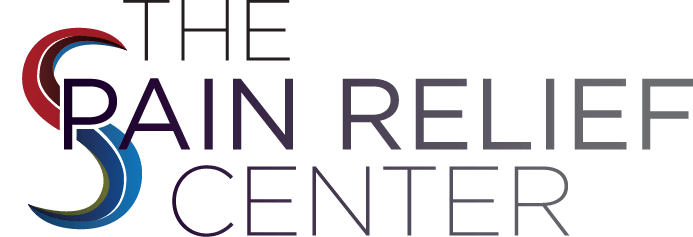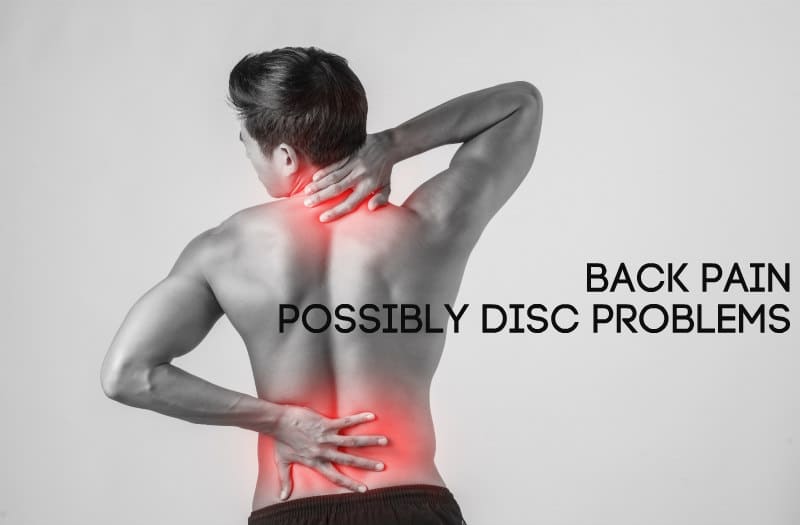Our spinal Discs act as little pivots for each joint segment of the spine. Strong and elastic, they give us stability when standing and enable our lower back and neck to perform a wide range of motion. Some of the terms used interchangeably for spinal problems are a pinched nerve, slipped disc, degenerated disc, and bulging or herniated disc.
Symptoms of Disc Problems
Spinal disc problems can result in different types of back pain or bone pain. Axial pain can be sharp or dull, constant or reoccurring. Referred pain varies in intensity and moves around. Radicular pain is deep and searing. Referred pain varies in intensity and moves around. disc problems may also cause numbness, tingling, and unexplained muscle weakness.
Risk Factors for Disc Problems
Aging is a risk factor for back pain or bone pain (see types below). Poor posture over the years while standing, sitting, or sleeping put stress on the spine. Traumatic events like car wrecks and sports injuries can damage discs. Obesity can also lead to spinal problems because the excess weight puts a strain on the lower back. Physically demanding jobs and genetics play a role in back problems.
Types of Disc Problems
In reality, disc problems are in one of two categories: degenerative disc disease and herniated, or slipped disc.
1. Degenerative Disc Disease
A spinal disc is similar to a jelly doughnut with a gel-like substance inside. As we get older, this “jelly” can dry out or shrink providing less cushioning between the vertebra. The result can be small tears that cause pain. If the pain comes from within the disc, it will be either axial or referred pain.
2. Herniated Disc
When a disc problem causes pain that runs along a nerve that exits the spine, it causes radicular pain. Numbness and tingling can also occur. These symptoms can indicate a herniated disc, a condition in which the gel-like substance leaks out and touches the nerve root. The substance is highly inflammatory.
Disc Problem Diagnosis
Degenerative disc disease comes on gradually and can have several related problems like spinal stenosis or herniated disc. A herniated disc is quickly diagnosed, but if the herniated disc is caused by degeneration, it becomes more complicated. Our primary care physicians can refer us to a neurosurgeon or orthopedic spine specialist to find the cause and accurate treatment. They use diagnostic questioning, X-rays, CT scans and MRIs to help in the diagnosis.
Treatment for Disc Problems
There are several minimally invasive procedures doctors can perform to relieve pain from degenerative disc disorder. They make remove disc material from a pinched nerve or bone or disc material that’s pressing on the spinal cord. More severe herniated discs require spinal stabilization. A specialist can perform minimally invasive procedures to stabilize the spine. The treatment may even include removing an unhealthy disc and replacing it with a prosthetic one.
Self Help for Disc Problems
We can try to manage pain from disc problems with otc medications like Aleve or Advil and hot/cold packs. We can try to pinpoint things we do that triggers pain and eliminate them. Maintain a healthy diet and stay hydrated. Improve posture and follow a prescribed program of physical exercise and rehabilitation.
Other Causes of Back Problems
Pain can result from inflammation and wear on the sacroiliac joint where the spine and pelvis meet. This can happen after an injury, infection, or arthritis. Spinal stenosis is a condition that means our spine has narrowed. This puts pressure on the spine and nerves causing pain. Cervical radiculopathy or pinched nerve can cause back pain. Spondylolisthesis is a condition where our spine slips out of place usually in the lower back. Finally, pain in the back can be caused by accidents like falls, sprains, and fractures.


